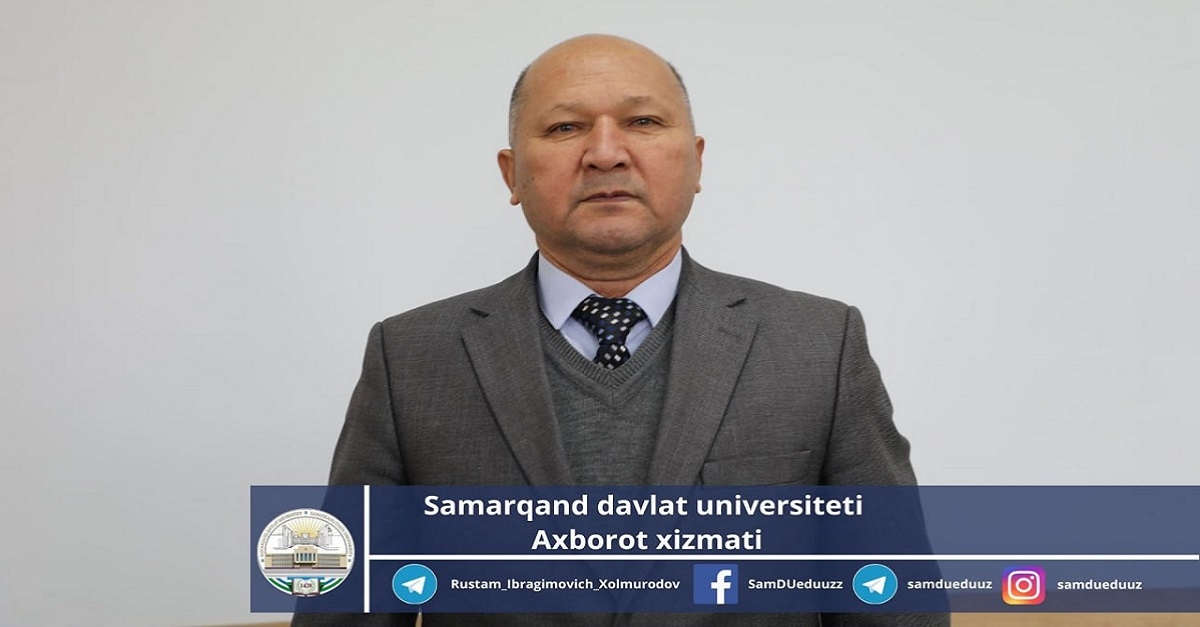What is physics for?

When it comes to physics, formulas and laws appear before our eyes. The existence around us, their essence and movement are directly related to physics.
- In order to know how the world around us works, first of all, it is necessary to study the laws of physics underlying it, - says Eshkuvvat Arzikulov, professor of the solid state department of the Institute of Engineering Physics of Samarkand State University. - Physics is not only complicated formulas. It is reflected in every object before our eyes. Physics is the science of nature. He studies all the phenomena and processes occurring in nature. Therefore, physics cannot be imagined separately from life. We live with physics every second. Gadgets that have become an integral part of our lives, machines and technical means that lighten our burden are, first of all, a product of physics. Every person will face physics in life, whether he wants it or not. But it is true that it is considered a relatively complex science. In fact, physics is the most interesting field, and at the same time it opens the way for the development of industries that are the basis for the development of any country.
There is no easy knowledge in this life. Each item has its own difficulty. It is true that science textbooks are difficult. In this regard, it would be appropriate to simplify some aspects. Teaching physics at school starts from the 6th grade. In my opinion, it would be appropriate to introduce students to simple concepts and definitions of physics, starting from the elementary grades.
If you look at foreign experience, then our textbooks are much simpler compared to foreign ones. The topics of the textbook prepared for the 7th grade correspond to the textbooks of our senior class. We are currently working on the translation of a 7th grade physics textbook developed at the University of Cambridge in cooperation with the Agency for Educational Institutions under the President of the Russian Federation. This textbook consists of 4 books and includes not only a general textbook, but also practical exercises and laboratory notebooks.
Every achievement and discovery in the field of physics directly serves the development of mankind. The development of physics affects the level of development of industries that are important for production, the economy and the development of the country as a whole. For example, after a certain discovery in physics has been made, the specialists involved in its introduction into production go out into the field and create equipment that eases the burden of humanity. Discoveries in the field of atomic and nuclear physics made possible the use of atomic energy. The discovery of semiconductors led to important changes in electronic computing. Space exploration made it possible to transfer data from any corner of the world, and the discovery of laser beams made it possible to use them in technology and healthcare. In short, the place of physics in human life is extremely incomparable.
In recent years, more and more attention has been paid to the quality of education. Improving the quality of education depends, on the one hand, on the teacher, and on the other hand, on the students. In improving the quality of education in physics, much attention should be paid to laboratory work. For many years science remained only a theory. This led to the fact that physics began to be considered one of the most difficult sciences. But if the theoretical knowledge gained is tested in laboratory classes, both the level of recall and the interest of students increase. Today, not all schools of the republic are equipped with laboratory equipment at the same level. In this regard, programs are being developed that allow conducting virtual laboratories. The use of such programs should be expanded. Only then will physics consist not only of complex theories and rules that remain on paper.
In today's rapidly changing world, the demand for physics is growing day by day, not decreasing. Because industries important for the development of the country are developed with the help of natural sciences.
Iroda BEKMURODOVA,
Information service employee of
Samarkand State University.

